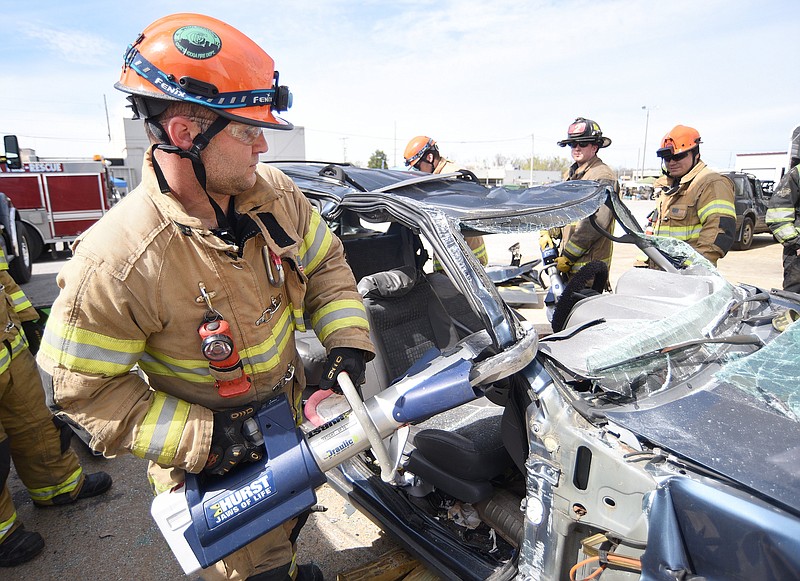Chattanooga firefighter case heard by Tennessee Supreme Court
January 8, 2025 at 9:00 p.m.
by Sofia Saric

The Tennessee Supreme Court is considering to what extent judges can review an agency’s denial of disability benefits after a Chattanooga firefighter was refused coverage from a city fund over his post-traumatic stress disorder.
Matthew Long worked as a Chattanooga firefighter for 15 years, according to a court of appeals opinion. He was diagnosed with PTSD, which stemmed from injuries and deaths he witnessed in connection with his job.
The Chattanooga Fire and Police Pension Fund then refused Long benefits, alleging he failed to prove the events that led to his disorder were “unexpected” as required by the fund’s disability policy, according to the opinion.
Long challenged this denial in Hamilton County Chancery Court and was awarded disability benefits, the opinion said. The court of appeals then agreed that Long should be awarded benefits.
The state’s highest court heard appeal arguments Wednesday while the fund seeks to determine if a court can second-guess a legitimate agency’s ruling on whether a person should receive disability benefits.
In the end, the Tennessee Supreme Court’s opinion is going to affect the review of decisions made by city, county and municipality pension boards across the state, attorney Robert Parsley, who is representing the pension fund, said during the Wednesday hearing.
Long reported to a supervisor he needed help with his mental health in July 2019, according to the opinion. He ultimately took leave and never returned as a firefighter at the Chattanooga Fire Department.
He reported not being as compassionate as a person, not enjoying work, being tearful at home and having difficulty sleeping, the opinion said.
Long identified several incidents to a counselor that stood out as causing some of these feelings.
He recalled an incident in which a woman locked her two children in a house and left, the opinion said. The house had caught fire.
“Although the boy survived, much of his skin and hair had sloughed off,” the opinion said. “The boy had visited them subsequently and was grateful for having been saved, but FF Long was troubled by how disfigured the boy was, and FF Long worried that his quality of life must be terrible.”
Shortly after, Long witnessed a crash in which an allegedly drunk woman failed to fasten the seat belts of her three children, the opinion said. A 13-year-old girl died after being thrown into the back window, and her newborn sibling had a crushed skull.
He had also seen other homicides and incidents in which he felt threatened or upset, the opinion said.
His job description, his training and his experiences would show those types of events are not unexpected as a firefighter, Parsley said.
“Is it expected that a child would come back later completely disfigured?” Janie Varnell, who is representing Long, said during the arguments.
There may be a difference between the language of “unexpected” being ambiguous, or it being a term that is hard to apply because there are so many scenarios, according to Justice Holly Kirby.
“Certainly, there are things that could have happened to Mr. Long that would be more unexpected if he had been kidnapped and held hostage on a call or something like that that’s not going to fall within the regular,” Kirby said Wednesday.
While the pension fund did not express its interpretation of “unexpected” events in its denial, Parsley argued the court should defer to the board’s statutorily rational decision to deny Long’s benefits and give deference to its decision.
It is unclear when the Tennessee Supreme Court is expected to rule on the matter.
This article was originally posted by The Chattanooga Times Free Press.